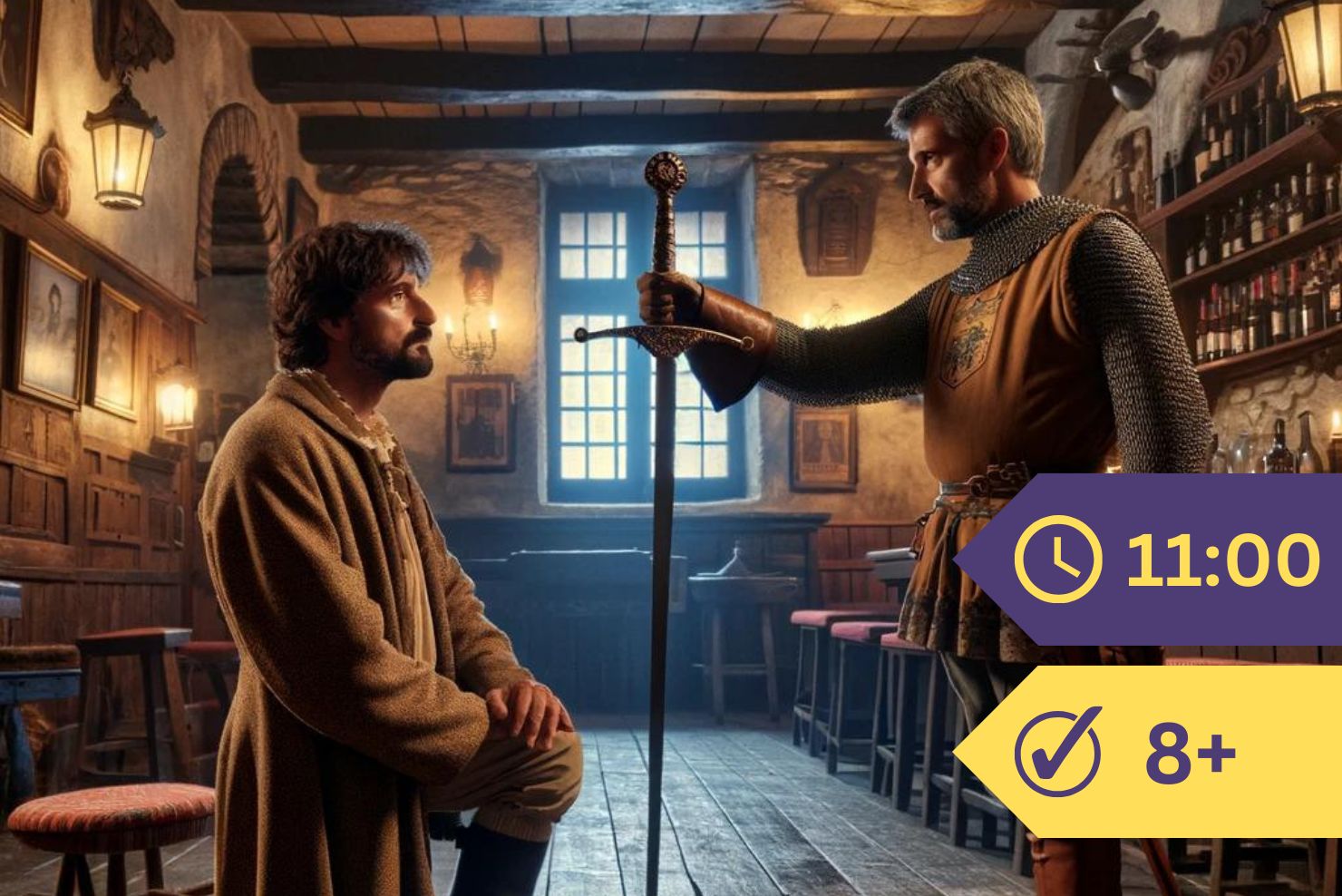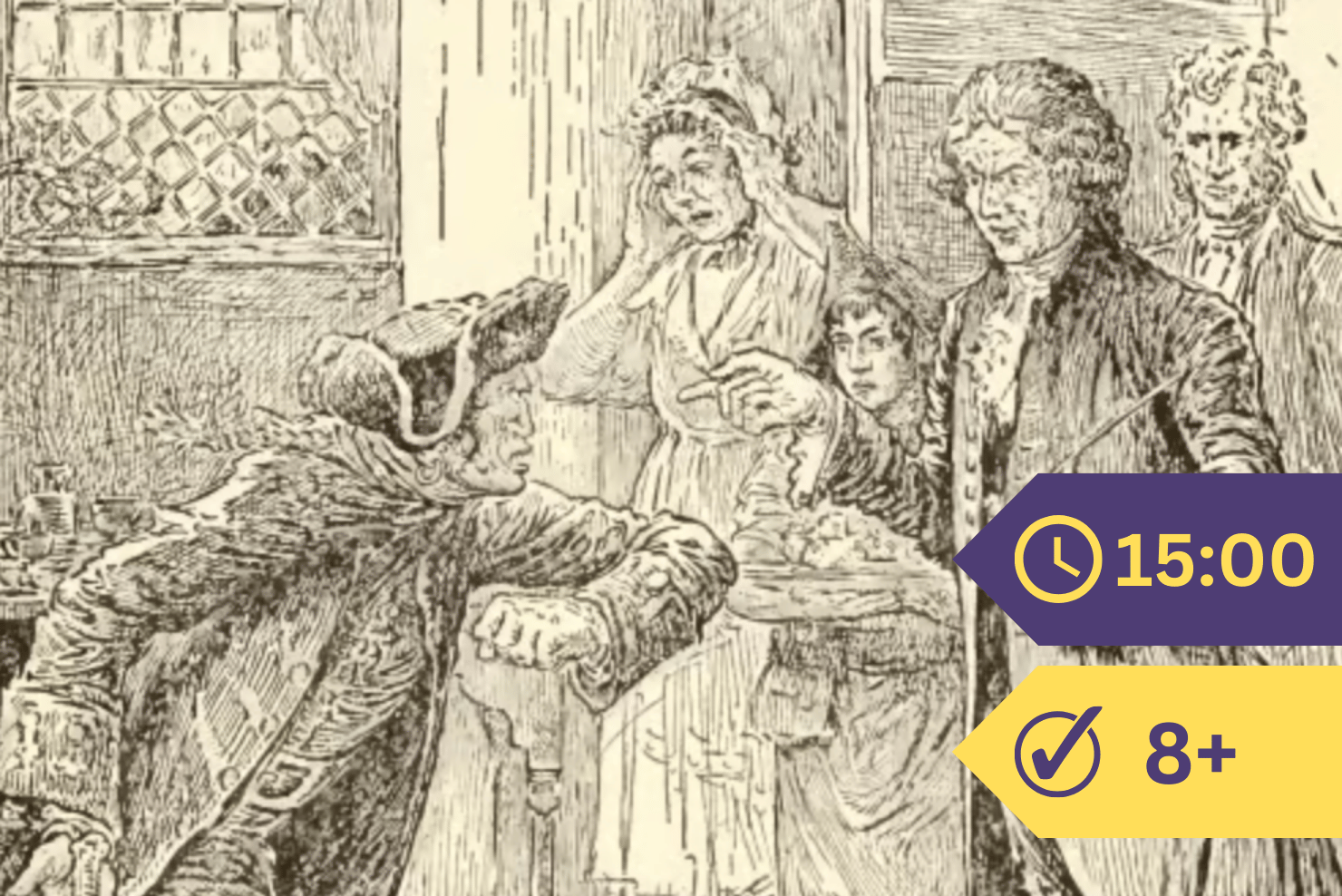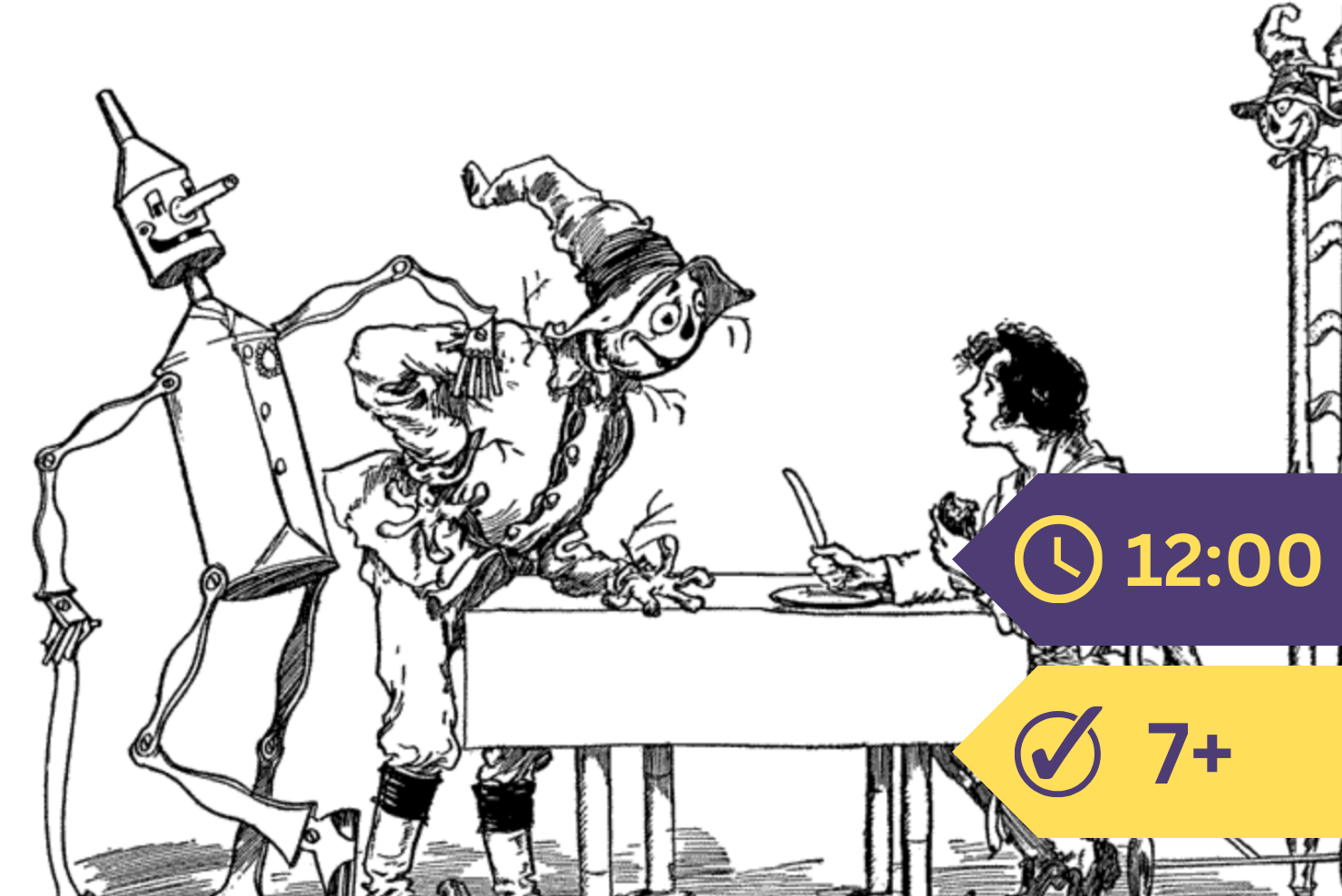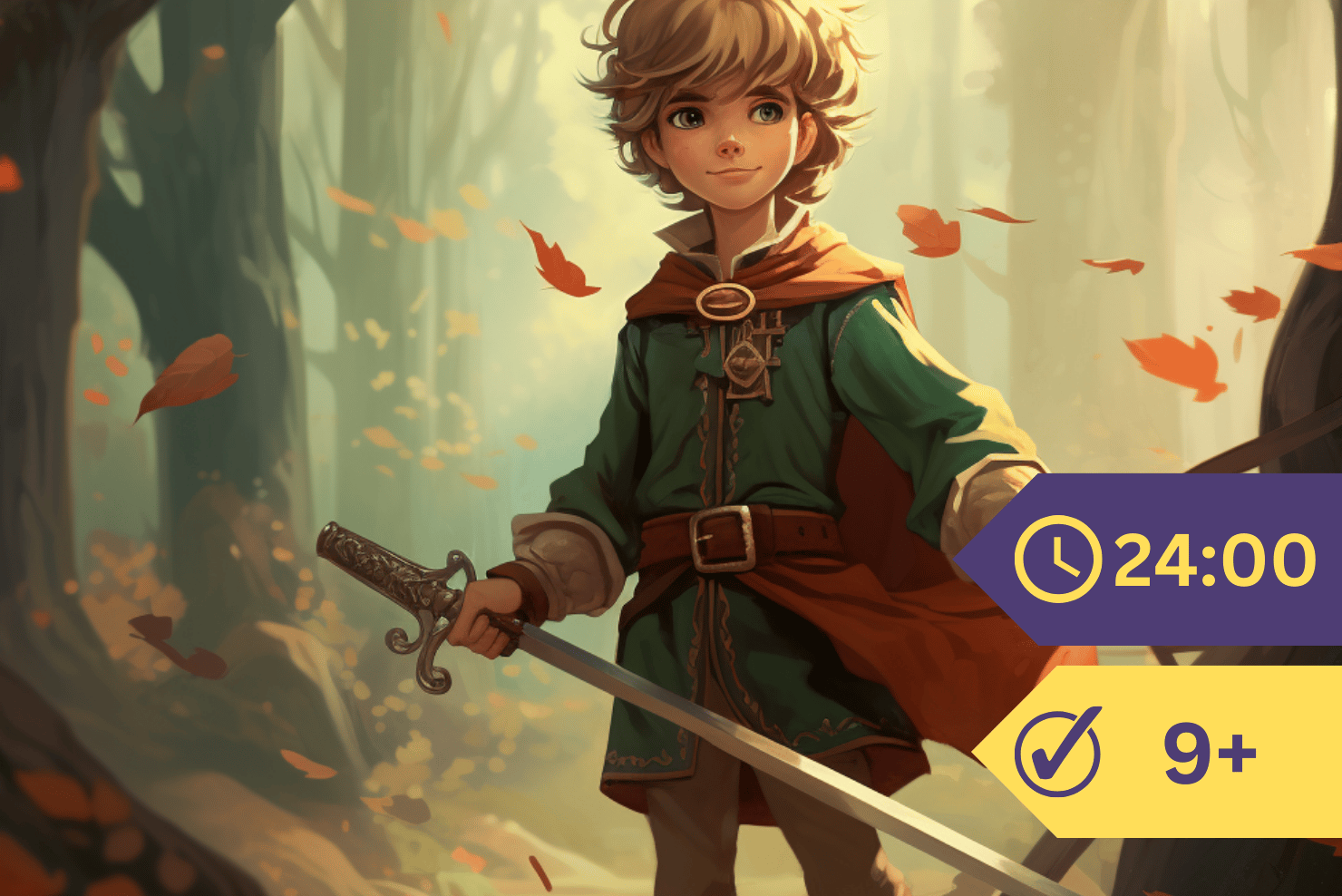All his preparations being made, he could no longer resist the desire of carrying out his plans, his head being full of the wrongs he intended to put right, and the evil deeds he felt called upon to punish. Without telling any living creature, and unseen of anybody, somewhat before daybreak—it being one of the warmest days in July—he armed himself from head to foot, mounted on Rozinante, laced on his strange helmet, gathered up his target, seized his lance, and through the back door of his yard sallied forth into the fields, marvellously cheerful and content to see how easily he had started on his new career. But scarcely was he clear of the village when he was struck by a terrible thought, and one which did well-nigh overthrow all his plans. For he recollected that he had never been knighted, and therefore, according to the laws of knighthood, neither could he nor ought he to combat with any knight. And even if he were a knight, he remembered to have read that as a new knight he ought to wear white armour without any device upon his shield until he should win it by force of arms.
He journeyed all that day, and at night both he and his horse were tired and hungry, and looking about him on every side to see whether he could discover any castle to which he might retire for the night, he saw an inn near the highway, which was as welcome a sight to him as if he had seen a guiding star. Spurring his horse he rode towards it and arrived there about nightfall.
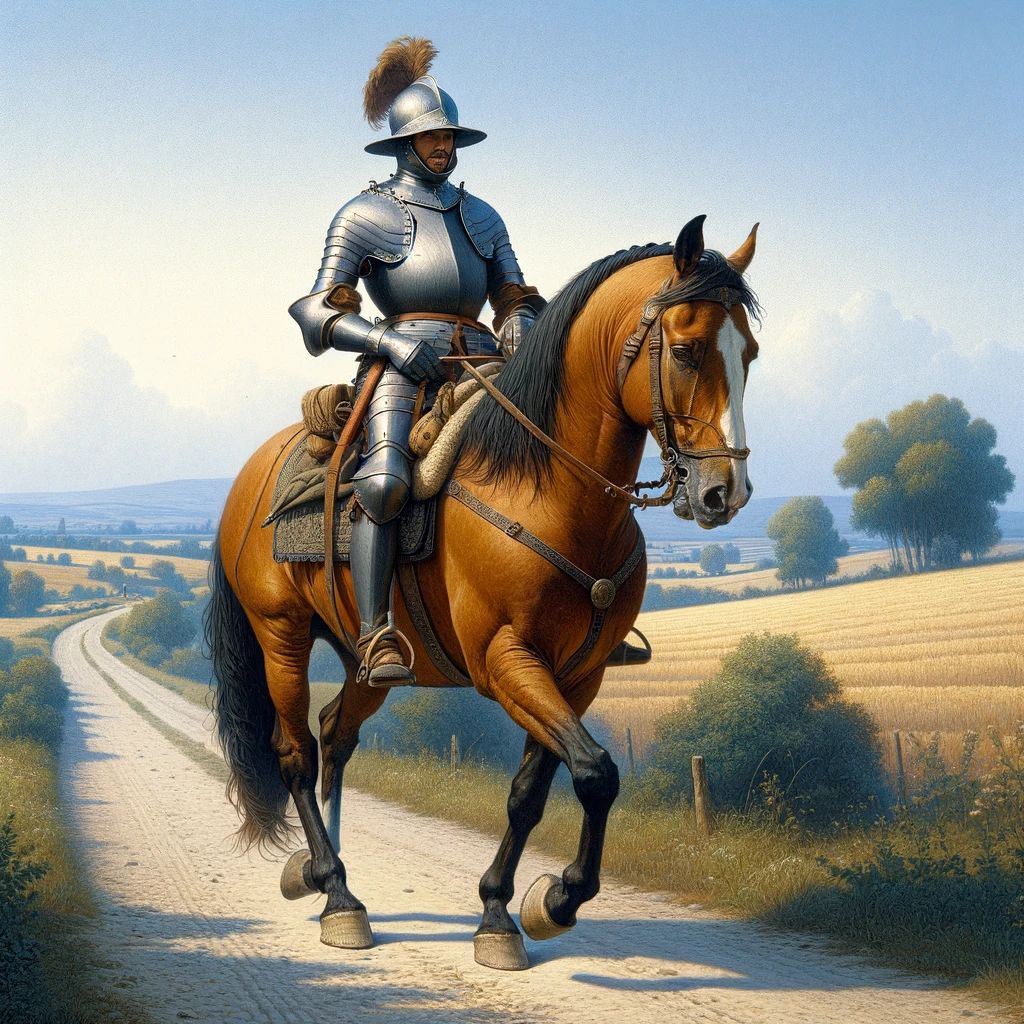
There stood by chance at the inn door two jolly peasant women who were travelling towards Seville with some carriers, who happened to take up their lodging in that inn the same evening. And as our knight-errant believed all that he saw or heard to take place in the same manner as he had read in his books, he no sooner saw the inn than he fancied it to be a castle with four turrets and pinnacles of shining silver, with a drawbridge, a deep moat, and all such things as belong to grand castles. Drawing slowly towards it, he checked Rozinante with the bridle when he was close to the inn, and rested awhile to see if any dwarf would mount on the battlements to give warning with the sound of a trumpet how some knight did approach the castle; but seeing they stayed so long, and Rozinante was eager to get to his stable, he went to the inn door, and there beheld the two women, whom he supposed to be two beautiful damsels or lovely ladies. At that moment it happened that a certain swineherd, as he gathered together his hogs, blew the horn which was used to call them together, and at once Don Quixote imagined it was some dwarf who gave notice of his arrival; and he rode up to the inn door with marvellous delight. The ladies, when they beheld one armed in that manner with lance and target, made haste to run into the inn; but Don Quixote, seeing their fear by their flight, lifted up his pasteboard visor, showed his withered and dusky face, and spoke to them thus: “Let not your ladyships fly nor fear any harm, for it does not belong to the order of knighthood which I profess to wrong anybody, much less such high-born damsels as your appearance shows you to be.”
The women looked at him very earnestly, and sought with their eyes for his face, which the ill-fashioned helmet concealed; but when they heard themselves called high-born damsels, they could not contain their laughter, which was so loud that Don Quixote was quite ashamed of them and rebuked them, saying: “Modesty is a comedy ornament of the beautiful, and too much laughter springing from trifles is great folly; but I do not tell you this to make you the more ashamed, for my desire is none other than to do you all the honour and service I may.”
This speech merely increased their laughter, and with it his anger, which would have passed all bounds if the innkeeper had not come out at this instant. Now this innkeeper was a man of exceeding fatness, and therefore, as some think, of a very peaceable disposition; and when he saw that strange figure, armed in such fantastic armour, he was very nearly keeping the two women company in their merriment and laughter. But being afraid of the owner of such a lance and target, he resolved to behave civilly for fear of what might happen, and thus addressed him: “Sir knight! if your worship do seek for lodging, we have no bed at liberty, but you shall find all other things in abundance.”
To which Don Quixote, noting the humility of the constable of the castle—for such he took him to be—replied: “Anything, sir constable, may serve me, for my arms are my dress, and the battlefield is my bed.”
While he was speaking, the innkeeper laid hand on Don Quixote’s stirrup and helped him to alight. This he did with great difficulty and pain, for he had not eaten a crumb all that day. He then bade the innkeeper have special care of his horse, saying he was one of the best animals that ever ate bread.
The innkeeper looked at Rozinante again and again, but he did not seem to him half so good as Don Quixote valued him. However, he led him civilly to the stable, and returned to find his guest in the hands of the high-born damsels, who were helping him off with his armour. They had taken off his back and breast plates, but they could in no way get his head and neck out of the strange, ill-fashioned helmet which he had fastened on with green ribands.
Now these knots were so impossible to untie that the women would have cut them, but this Don Quixote would not agree to. Therefore he remained all the night with his helmet on, and looked the drollest and strangest figure you could imagine. And he was now so pleased with the women, whom he still took to be ladies and dames of the castle, that he said to them: “Never was knight so well attended on and served by ladies as was Don Quixote. When he departed from his village, damsels attended on him and princesses on his horse. O ladies! Rozinante is the name of my steed, and I am called Don Quixote, and the time shall come when your ladyships may command me and I obey, and then the valour of mine arm shall discover the desire I have to do you service.”
The women could make nothing of his talk, but asked him if he would eat, and Don Quixote replying that such was his desire, there was straightway laid a table at the inn door. The host brought out a portion of badly boiled haddocks, and a black, greasy loaf, which was all the inn could supply. But the manner of Don Quixote’s eating was the best sport in the world, for with his helmet on he could put nothing into his mouth himself if others did not help him to find his way, and therefore one of the women served his turn at that, and helped to feed him. But they could not give him drink after that manner, and he would have remained dry for ever if the innkeeper had not bored a cane, and putting one end in his mouth, poured the wine down the other. And all this he suffered rather than cut the ribands of his helmet.
And as he sat at supper the swineherd again sounded his horn, and Don Quixote was still firm in the belief that he was in some famous castle, where he was served with music, and that the stale haddock was fresh trout, the bread of the finest flour, the two women high-born damsels, and the innkeeper the constable of the castle. Thus he thought his career of knight-errant was well begun, but he was still greatly troubled by the thought that he was not yet dubbed knight, and could not therefore rightly follow his adventures until he received the honour of knighthood.


